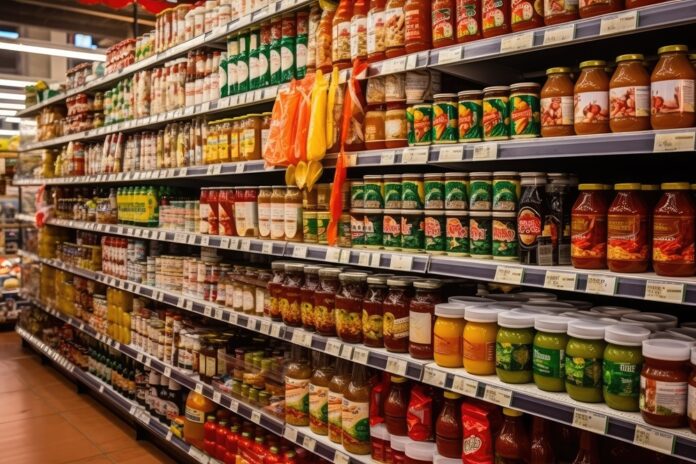The point-of-sale (POS) system is the heartbeat of any grocery store, managing everything from inventory and sales to customer loyalty and data analysis. Choosing the right system is more than just a technological decision—it’s essential for your grocery business’s efficiency, growth, and ultimate success. But how does one narrow down the search with so many options available?
This comprehensive guide will explore the vital elements to evaluate when selecting a POS system for your grocery store. Whether you’re a start-up or an established business, investing in the right POS technology can transform your operations, enhance the customer experience, and boost your bottom line.
Understanding Grocery Store Needs
Grocery stores have unique requirements that differentiate them from other retail sectors. Here’s what you should consider when assessing your POS needs:
Inventory Management
Precise and dynamic inventory control is non-negotiable for grocery stores. The grocery POS system must handle perpetual inventory, track expiration dates, and manage order cycles effectively.
Scale Integration
Weighed items are used daily in grocery stores, so choosing a POS that seamlessly integrates with scales to reflect accurate quantities and prices is imperative.
Product Categorization
Categorizing products based on perishability and other factors can make or break efficiency in a grocery store. Your POS system should facilitate this categorization with ease.
Promotion and Discount Capabilities
The versatility of the grocery point of sale in managing varying promotions and discounts is crucial to meeting the dynamic pricing strategies in grocery retail.
Loyalty Program Integration
Loyalty programs are often a must for customer retention. Your POS system should integrate smoothly to provide a seamless customer experience.
Shelf-Life Tracking
Enhancing food safety and reducing waste requires robust tools to track and manage product shelf lives. Your POS should offer this capability in a user-friendly manner.
Understanding these needs will help identify a POS system that aligns with your grocery store’s operational structure.
Types of Grocery Store POS Systems
It’s also important to consider what POS system best suits your grocery store. The main types are as follows:
Traditional On-Premises POS Systems
Installed on-site, these systems offer high control and security but can come with higher upfront costs and potentially limited mobility.
Cloud-Based POS Systems
Cloud-based systems provide flexibility and are often more cost-effective, but they rely on a steady internet connection and can have ongoing subscription fees.
Hybrid POS Systems
Mixing the benefits of on-premises and cloud systems, hybrid POS solutions offer more choices but can be more complex to manage.
Mobile POS Systems
Increasingly popular for their agility and cost-effectiveness, mobile systems are an excellent fit for smaller grocery stores or as a supplemental system for larger ones.
The choice of grocery POS system type should consider factors such as store size, budget, and scalability needs.
Factors to Consider When Choosing a POS System
Choosing the right POS system involves careful consideration of several critical factors. Here are the primary elements you should weigh:
Budget Considerations
Whether you’re working with a tight budget or have funds to invest, understanding the costs associated with POS systems, including hardware and software, is vital.
Scalability and Growth Potential
You will want a system that can grow with your business, allowing for increased product lines, stores, and technological advancements without significant overhauls.
Integration Capabilities
A POS system should be compatible with other software you use, such as accounting or inventory management systems, to provide a seamless operational backbone.
Ease of Use and Training Requirements
The easier the system is to use, the quicker your staff can adapt. Consider the learning curve and the time investment required for training.
Customer Support and Maintenance
Look for vendors that offer proactive support and maintenance to minimize disruptions to your business operations.
Security Features
Safeguarding your customers’ data is paramount. Ensure the POS system has robust security features to protect against cyber threats.
Customization Options
Every grocery business has unique needs. The ability to customize your POS system to cater to these specific requirements is invaluable.
Understanding and prioritizing these factors will help you match the best POS features to your grocery store.
Comparative Analysis
Consider each provider’s features, pricing, and customer reviews to determine their suitability for your grocery store.
Testimonials
Real-world experiences from grocery store owners using each POS system can provide valuable insight into their performance and potential fit for your business.
Exploring these leading providers will give you a head start in making an informed decision about your POS investment.
Implementation and Training
Transitioning to a new POS system can be a significant operational challenge. Here are some critical steps to ensure a successful implementation:
Planning
Thorough planning is critical. Develop a clear timeline and communicate changes to your staff and customers well in advance.
Training
Invest in comprehensive training to minimize disruptions during the transition period. Empowered staff will ensure a smooth, productive transformation.
Challenges and Solutions
Anticipate and strategize how to address common challenges such as resistance to change and issues with data migration.
Proactively addressing these areas can pave the way for a successful POS implementation in your grocery store.
Conclusion
Choosing the right POS system for your grocery store is a decision that requires careful consideration. It’s not just about the features and capabilities; it’s about finding a system that seamlessly integrates into your store’s operations, enhances the customer experience, and grows with your business.
By understanding your store’s unique needs, evaluating the different types of POS systems, weighing the essential factors, exploring leading providers, and planning for implementation and training, you can be well on your way to selecting the ideal POS solution for your grocery store.
Ultimately, your POS system is an investment in the future of your grocery business. Take the time to research, compare, and choose wisely to enjoy the fruits of efficient operations and happy customers. Make this decision a collaborative and strategic effort; your POS system will be a fundamental pillar of your grocery store’s long-term success.















